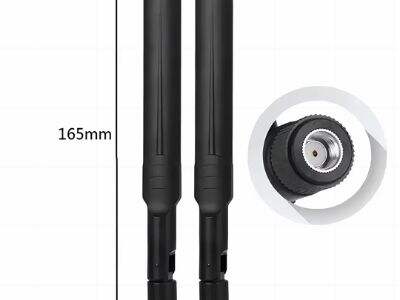When we used a GPS device, we relied on it to know where we were. Seriously, have you ever sat down and considered how all of this is even possible? GPS Antennas Essential For GPS Functioning GPS antenna is quite essential for GPS operation. They get signals from Global Positioning System (GPS) satellites in high above the ground, which help us to locate our place on maps. However, a lot of things can influence how effectively these antennas perform. Things like the weather, how we design the antennas, where we place them.
Heres a More in-depth of How Weather Affects GPS Antennas
Different weather conditions can affect different GPS antennas that can alter their performance. For example, if you are in a place with tall mountains, the mountain tops can block GPS signals. In other words, your GPS might not be very effective in those areas, and it may not provide the appropriate information when you attempt to use it. In cities with lots of tall buildings or in dense forests with multiple trees, the GPS may also have trouble receiving a signal.
Also, when there is high humidity in the air, meaning there is a lot of moisture, GPS signals can get weak. That is because GPS signals are transmitted as radio waves, which can be disrupted by water vapor in the atmosphere. Extreme heat or cold can also alter how the antenna was meant to function. The above weather factors are very significant to consider while manufacturing and designing GPS antennas, as these factors have a major impact on the GPS device performance.
How Does the Antenna Affect GPS Signals?
Receiver Antenna DesignThe actual design of the GPS antenna is also very important in terms of its reception capability. The shape, size, and materials are all a factor in how sensitive it is to the signals it can pick up. And if the antenna isn’t built correctly, it may not operate properly, resulting in incorrectly locating people in place. If you are trying to get somewhere, this can become very confusing!
Some companies like Signal invest tons of money and time in R&D for better GPS antennas. They are doing everything they the best they can to ensure these antennas are designed so they can work at high efficiency and be able to catch all the signals. The quality of the antenna also has very high importance factor to the precision of GPS device in determining your position.
Things That Block GPS Signals
Another point to be aware of is that GPS signals get interrupted by many other devices. Like if you have a smartphone or other GPS device nearby, then the signals get confused and the location will be incorrect. When they are on their way to the antenna, the signals can end up muddling together, and so this happens.
In addition, tall buildings, bridges, and tunnels can hinder the GPS signal from reaching the antenna properly. These or similar structures can obstruct the line of sight that allows the GPS antenna to receive clear signals from satellites when nearby. That’s why it’s critical to place GPS antennas in places relatively free of electronic devices and such things as buildings and trees that could block signals coming from above.
The Best Locations for GPS Antennas
The way we position the GPS antennae and their placement can significantly impact performance. It should have an unobstructed shot of the sky above to capture GPS signals without issues. You should use open space to place the antenna and keep it far from obstructions in the way of signals. Finally, the antenna must also be sealed and tripod stable such as not to shake or vibrate, which can affect its detection capability.
Others, like Signal, produce GPS antennas that are easy to install and need minimal tuning to function properly. This is to say that you'll be able to place them in the correct location without significant hassle, and they'll run well for an extended period of time.
The Importance of 4g lte antennaGPS Receiver Sensitivity on Antenna Performance
A key factor to consider is the sensitivity of the GPS receiver. This is quite critical as it determines the ability of the antenna to receive and interpret the GPS signals. So if visiting areas where signals are weak, a more sensitive receiver can catch the weak signals.
When you select an antenna to accompany a receiver, it is definitely good to think a bit about how sensitive the GPS receiver is. But not just any GPS antenna will do, which is why companies like Signal manufacturer GPS antennas to be compatible with a wide range of GPS receivers to ensure that everything works together in harmony for the best performance available.
To sum up, gps antenna pcb play a crucial role in the functionality of GPS devices and assist in navigation. Factors like High-Frequency influence and the antenna fabricating process, can affect their effectiveness. Our company Signal is constantly trying to develop new and advanced gps antennas that can take all this into account. So, by taking proper locations for the antennas and also, considering the sensitivity of the GPS receiver, we can have reliable and accurate location information in any weather conditions.

 EN
EN
 ES
ES
 RU
RU
 DE
DE
 IT
IT
 FR
FR
 PT
PT
 UK
UK
 VI
VI
 TR
TR
 PL
PL
 KO
KO
 JA
JA
 AR
AR
 BG
BG
 HR
HR
 CS
CS
 DA
DA
 NL
NL
 FI
FI
 EL
EL
 NO
NO
 RO
RO
 SV
SV
 TL
TL
 IW
IW
 ID
ID
 LT
LT
 SR
SR
 SK
SK
 SL
SL
 ET
ET
 HU
HU
 MT
MT
 TH
TH
 FA
FA
 GA
GA
 BE
BE
 IS
IS
 LB
LB
/images/share.png)

